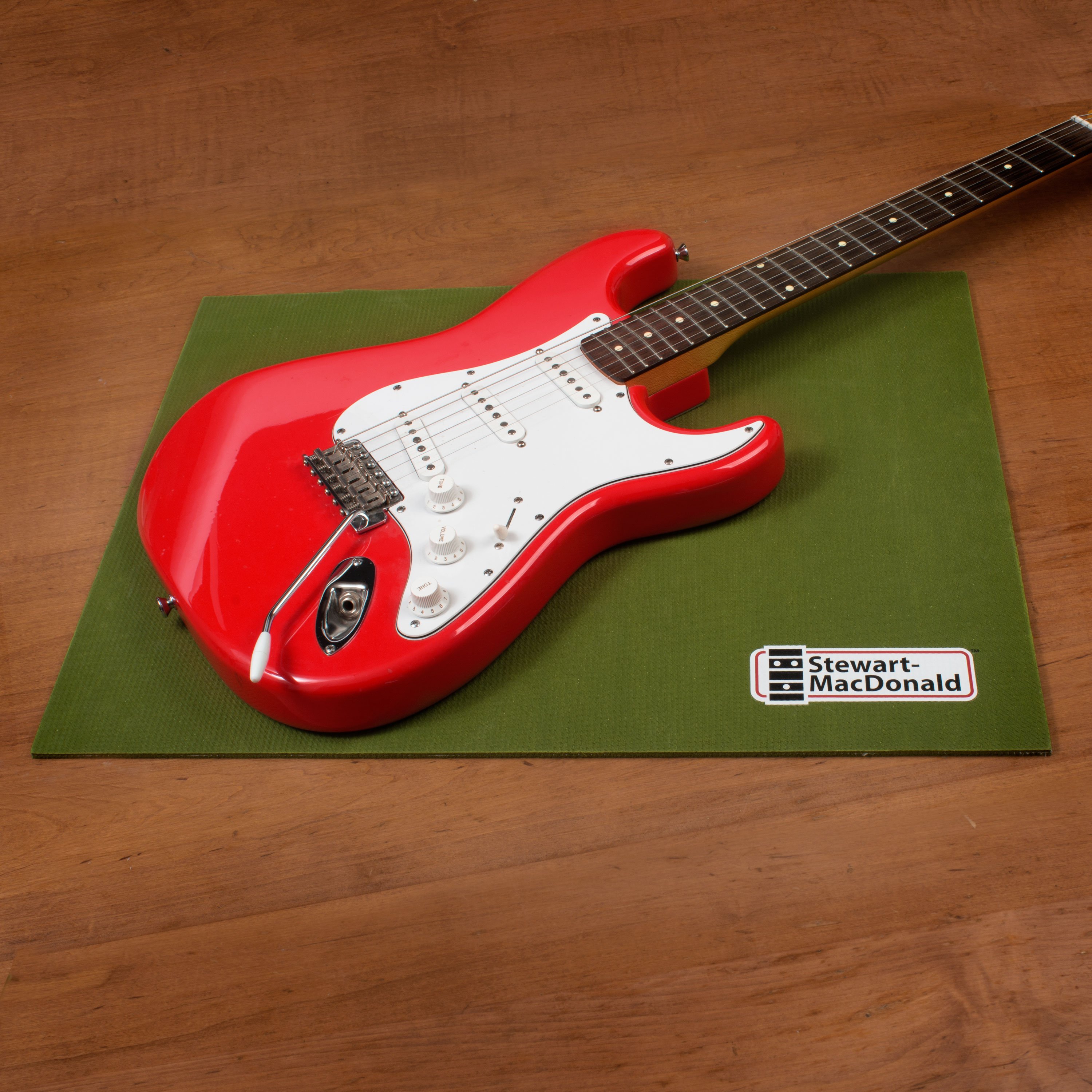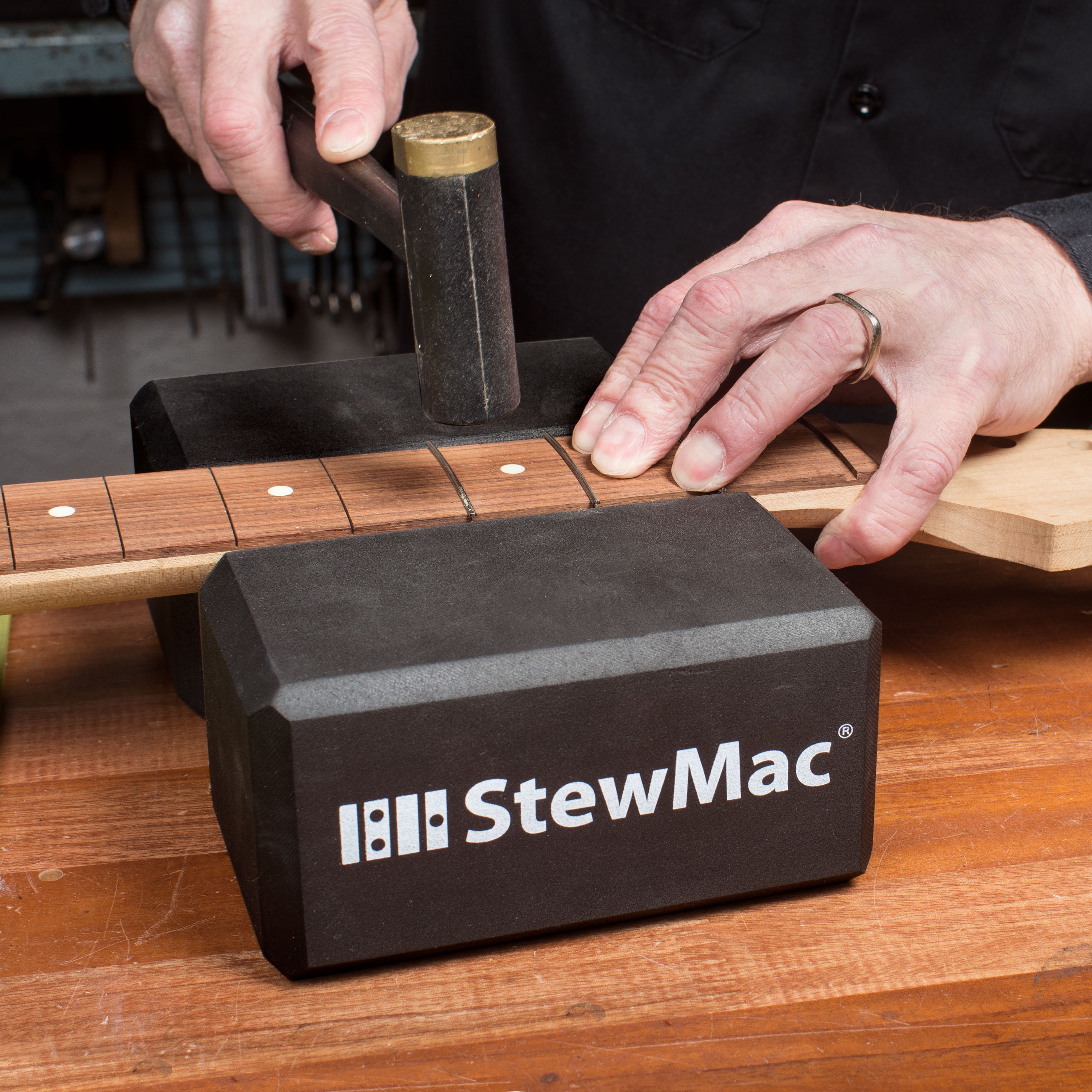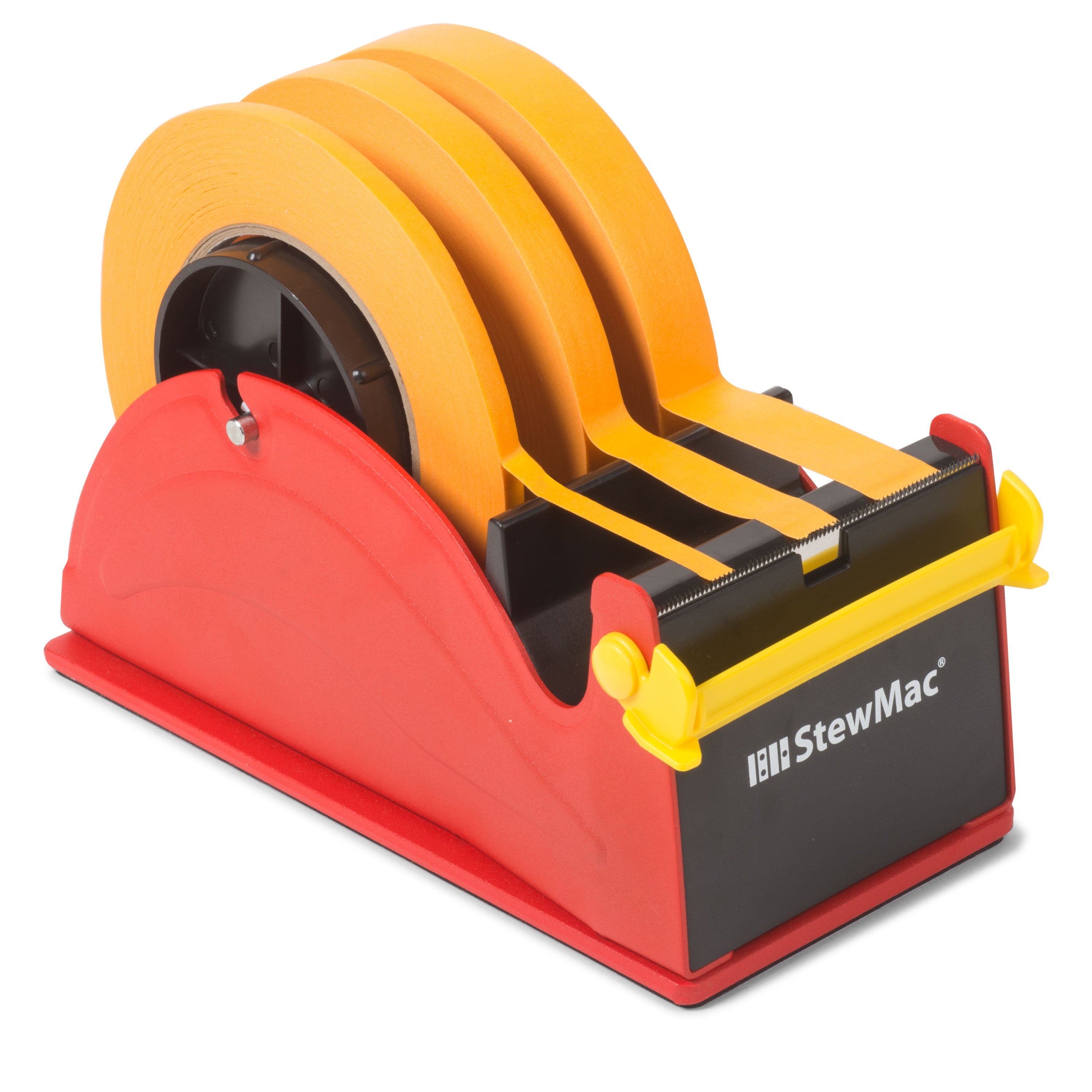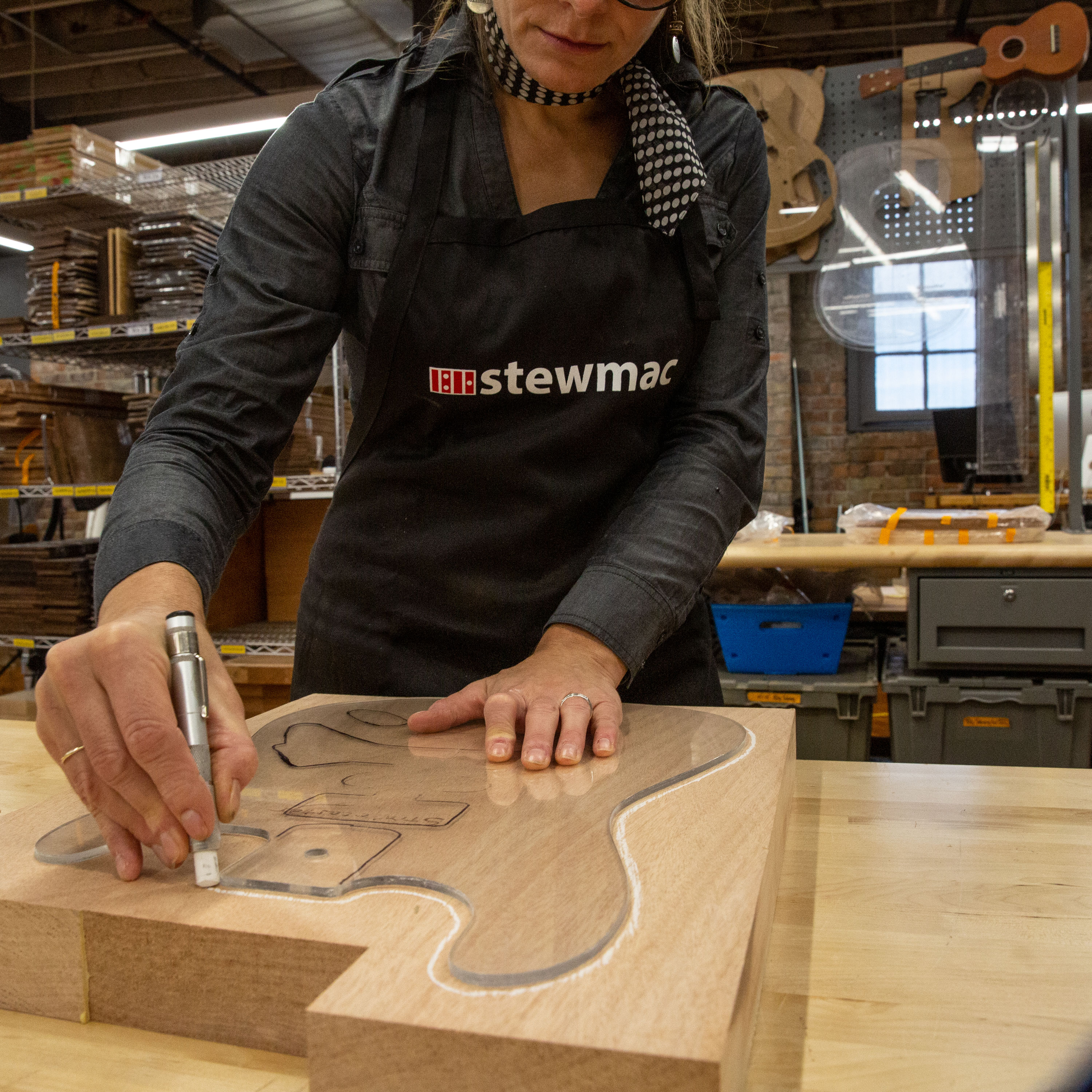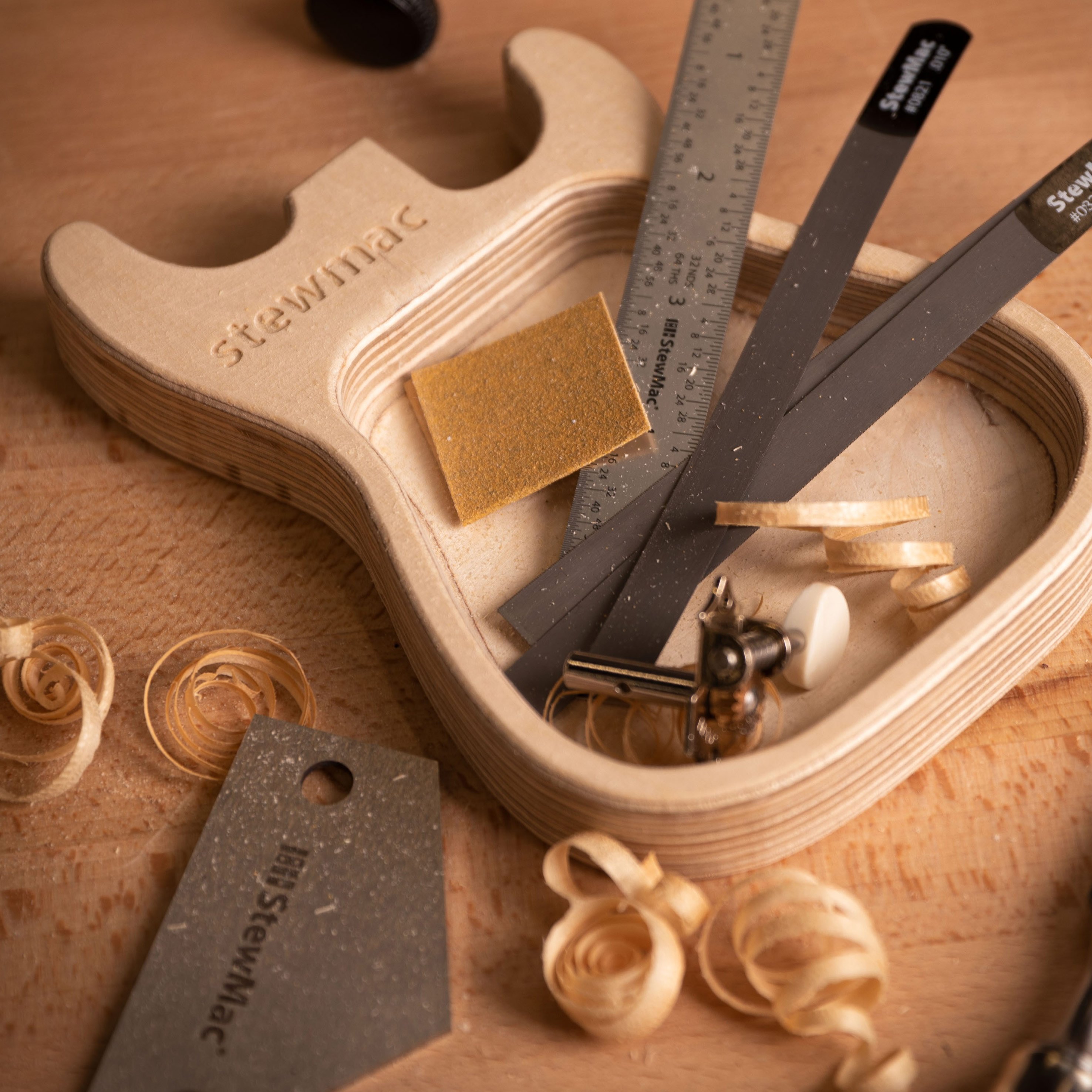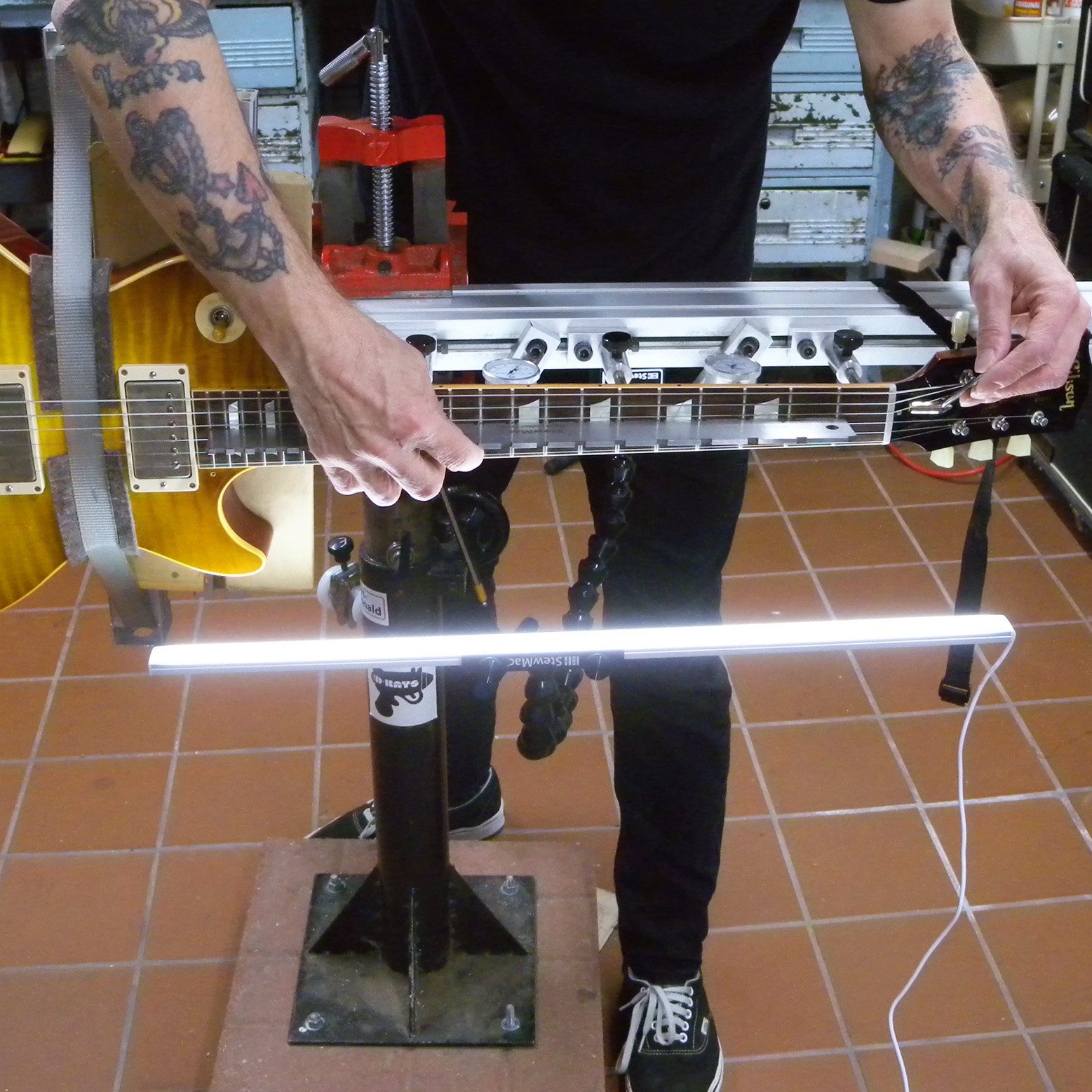Running a one-man guitar shop with Evan Gluck
Evan Gluck’s workdays at New York Guitar Repair are busy, but he’s learned not to let them get TOO busy. He’s learned a lot about managing client work, and shares it in this extra video.
The music for this video: that’s Evan multi-tracking himself on electric bass!
Video Transcription
[on-screen text reads: Running a one-man guitar shop - StewMac]
Evan Gluck: Okay. I'm Evan Gluck and I run New York Guitar Repair here in New York City. If you're in a city like New York or Nashville or one of the big cities that has a big music population, if you're doing solid work, you are going to be as busy as you can be. So something I want to talk about a little bit is how do you organize that without losing your mind?
Scheduling strictly by appointment
So I have a system that seems to be relatively unique in where I only take in as much work as I can do in a week. I work strictly by appointment and I just schedule things out so that I'm never in the position to have somebody's guitar for two weeks. It's taken them two weeks to get into see me, except I'm going to work on that guitar within 24 hours. So it sort of shifts the responsibility of the wait time off of me. I tell them when I can see their guitar and then they bring it in and it works out perfectly.
My daily schedule
Generally, my schedule is, I wake up at about 7:00 or so. I usually have a guitar in my hand by eight o'clock. If you notice, my first customer is coming in at 10:00. Then I work with people until 1:00 doing drop offs or a wire weight repair. Then I have a two hour block where I don't really do anything unless I want to, where I'll fix guitars if I want to, or I'll take a break. Then I work from 3:00 to6:00 with people again, and then I'm usually working until about 7:00 or 7:30.
Something that I instituted about two or three years ago is I don't pick up the phone. First off the phone is an interruption into what I'm doing, and the most important thing that I'm doing is dealing with a client who's in front of me or dealing with a guitar that's in front of me. Whatever's on the phone is going to stay on the phone. So I just direct everybody to email me. If you call me and I pick up the phone, I'm annoyed that I'm interrupted, that I have to talk to you. So right there, that's strike one, because I'm pissed off that I've picked up the phone. You're scared because you don't know who you're talking to when you call up somebody blind. So you are strike two. You're in your own freaked out world because you don't know who you're talking to.
Email communication
With emails, I can tell more about somebody, by the way they're writing in a very relaxed environment. I can just see how people write and if they're going to be problematic and I can... It's not that I'm not going to serve them, but I can be forewarned when they come in that this person may be somebody who's going to take a little more time than some of my regular customers.
No phone policy
Every now and then, and here's the thing, I will accommodate the phone if somebody specifically leaves me a message and just say, "I don't use email. I prefer to talk to you on the phone." But one of the lines that I'll use if somebody says to me, "Oh, well, I really need to talk to you on the phone," I'll say, "Well, if you call a doctor or a dentist, you speak to a receptionist. You never speak to them. Right?" And they go, "Right." I'm like, "Well, I can't afford a receptionist."
Another thing that I do is I keep the work that I've done in front of me so that when I'm working on a guitar, I'm looking at all the guitars that I've fixed and I'm saying to myself, "Woo hoo. Wow, you did a great job today. You're going to make a bunch of money. It's fantastic." The guitars that I have to work on are behind me where I can't see them. So psychologically, I'm looking at an achievement rather than a task that I have to do. What I really try and do is by Sunday, I like to be done with everything in the shop so I can say to myself, "You're done. Good job, and you're out."
Self-care to avoid burn out
I tried doing it the way it seems most shops do, where you take in everything whenever people call you. I did that for about six and a half years, and I felt like I was burning out. So I decided that I needed to do something a little different. So I shifted things around and I started working the way I work now. Every year I tweak it and modify it. And every year the business seems to do better. Every time that I figure out a way to take care of myself, it impacts the way I work because essentially, you are paying me for my A-game. If I am not A-game all the time, then I'm ripping you off. So I have to be at my least stressed out [on-screen text reads: Pro guitar repairs in a tiny shop], most relaxed and most focused level at all times. So the only way you can really do that is to take care of yourself. The guitars will come in if you're in good shape to take them in.
[on-screen text reads: StewMac tools + ideas for guitarmaking]

